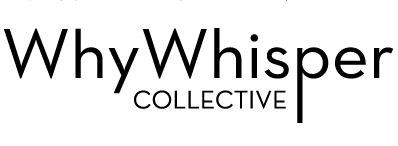In today’s world, women continue to face biases and obstacles that they must overcome and break down in order to succeed. This is true for women of all ages, in every country, and across each sector.
At WhyWhisper, we choose to work with teams that hire people of all genders, and treat them fairly. We also have the incredible opportunity to work with inspiring women who are focused on social and environmental change, as well as on creating a better world for other women.
That’s why this month, we’re launching an interview series that will feature female changemakers who are boldly addressing the unique issues that women face every day.
These issues are complex and nuanced, and require strategic attention. We can’t rely on the natural progression of our social and political systems to lead to the necessary change – we need to make a concerted effort toward a more fair and equal world.
Why do we need to make such an intentional effort? Let’s look no further than this summer’s headlines:
Women are still being told what to wear.
Last month, a number of towns along the French Riviera banned the wearing of burkinis, a type of body-covering swimwear that some hijab-wearing Muslim women choose to wear when swimming in public. The reason for the ban is that they aren’t “in line with France’s secular views,” but the issue here extends far beyond the argument around whether or not the garment is attached to a particular religion. In fact, one of the main controversies that has stemmed from the ban is around women’s freedom to dress how they feel comfortable, and whether or not the government should be able to regulate that. It’s hard to believe that in 2016, male police in developed democracies can still stop a woman on the beach and force her to change her clothing.
Female athletes are still being referred to secondarily.
This year’s Olympics marked an important shift for female athletes with women making up nearly 45% of competing athletes, the highest percentage in Olympic history. That’s an exciting milestone, and one that we acknowledge and applaud, but unfortunately, sexism around coverage of these athletes’ performance was still very prevalent. To name just a few examples, when U.S. trap shooter Corey Cogdell-Unrein of won a bronze medal at this year’s Olympics, the headline announcing her win in the Chicago Tribune referred to her only as the wife of a Bears lineman, not by her name. And when U.S. swimmer Katie Ledecky set a new world record for the women’s 800 freestyle and Michael Phelps tied for silver during 100 meter butterfly race, the Associated Press put out a headline that started with “Phelps ties for silver in 100 fly” in large, bold letters, followed by “Ledecky sets world record in women’s 800 freestyle” in smaller text. These are two of many examples of how the incredible athletic accomplishments of women at this year’s Games were unfairly overshadowed in favor of men.
Women in politics are still being judged for their appearance.
For the first time in United States history, we have a woman as a major party presidential nominee. Yet when that woman, Hillary Clinton, gave her victory speech in New York after winning the state’s primary election in April, almost all we heard about was her expensive jacket. It would be one thing if that were an isolated incident or we judged male politicians in the same manner, but it wasn’t, and we don’t. Hillary is one of many female politicians who are under constant fire for their appearance, from their hairstyles, to their weight. Female politicians are judged for their looks far more than men in a way that is distracting and demeaning, and their competitors have even been known to use their looks as fuel against them on occasion. It’s time we put these kinds of observations to rest, across every sector.
These are just a few of the biases and barriers that women in the news faced this summer, but we’re ready to share what’s happening on the other side of the coin – how women are making substantive positive impact in their communities and beyond, and changing the game for other women all over the world. Stay tuned in the coming weeks for their inspiring stories.
Do you know of a female changemaker who is working to make the world a better place for women? Tell us about her! We want to share her story. Here’s how:




